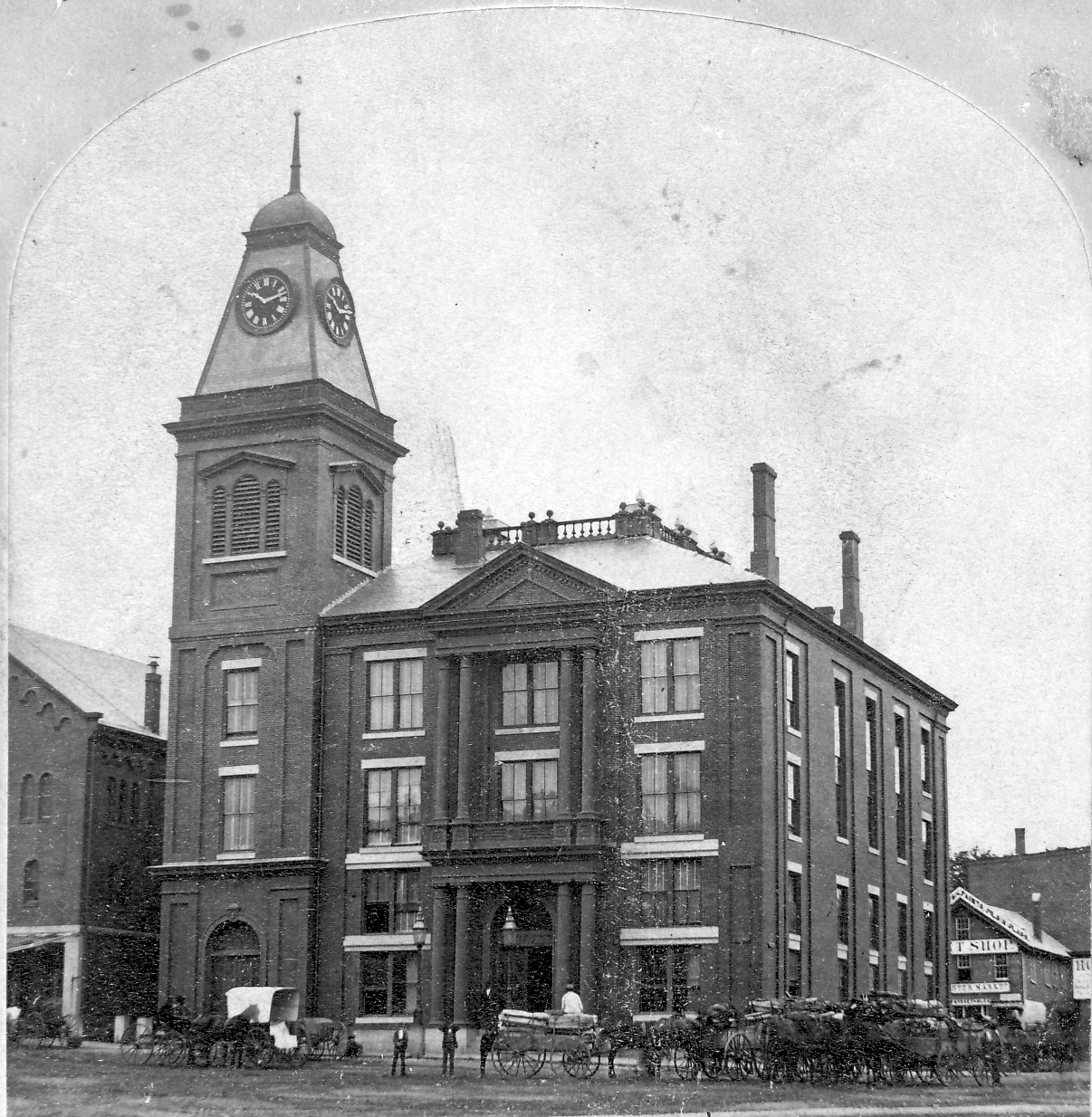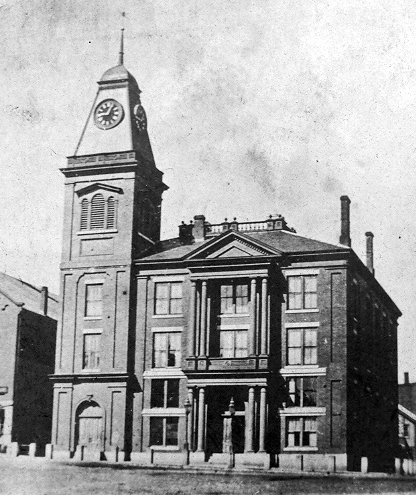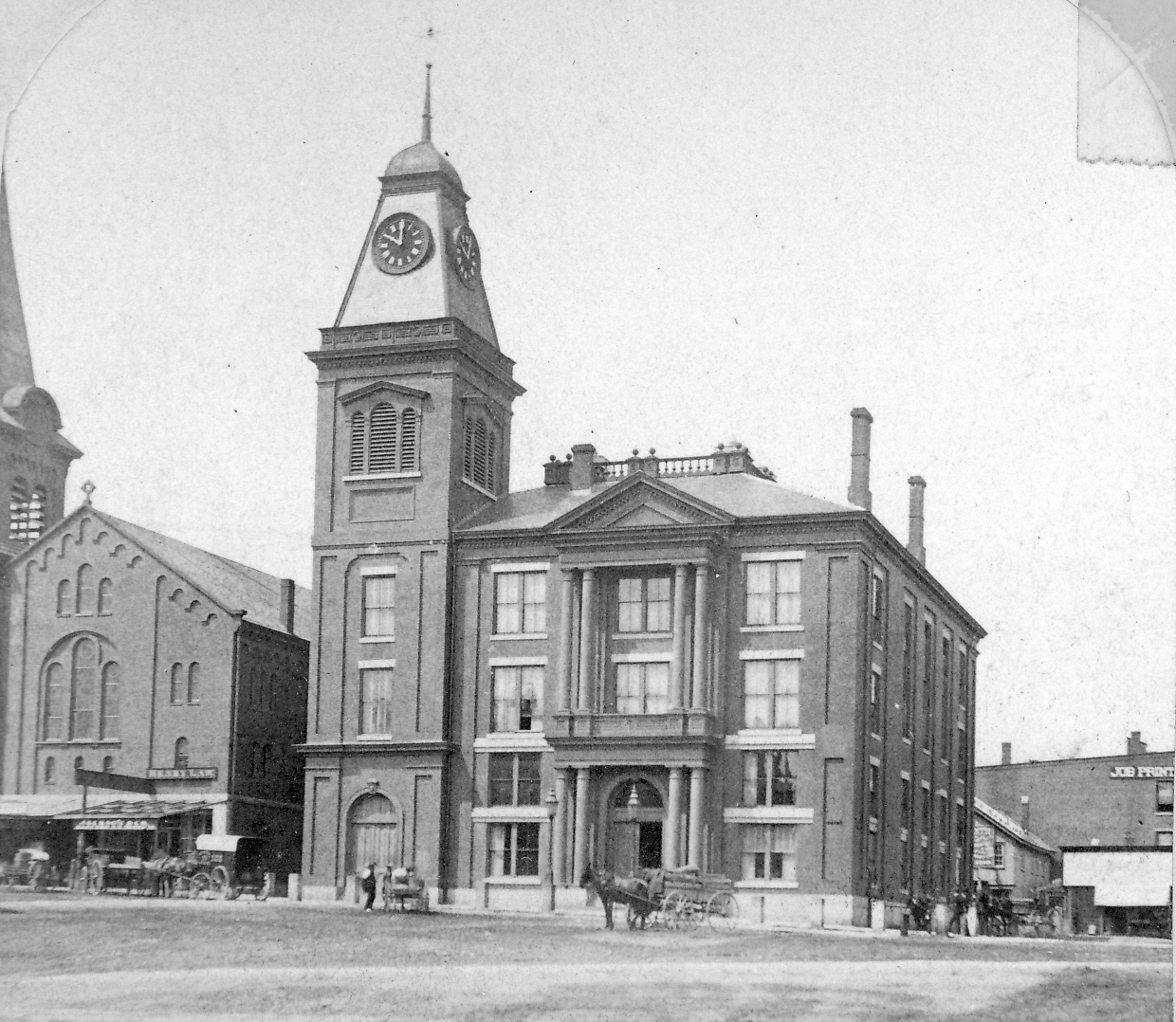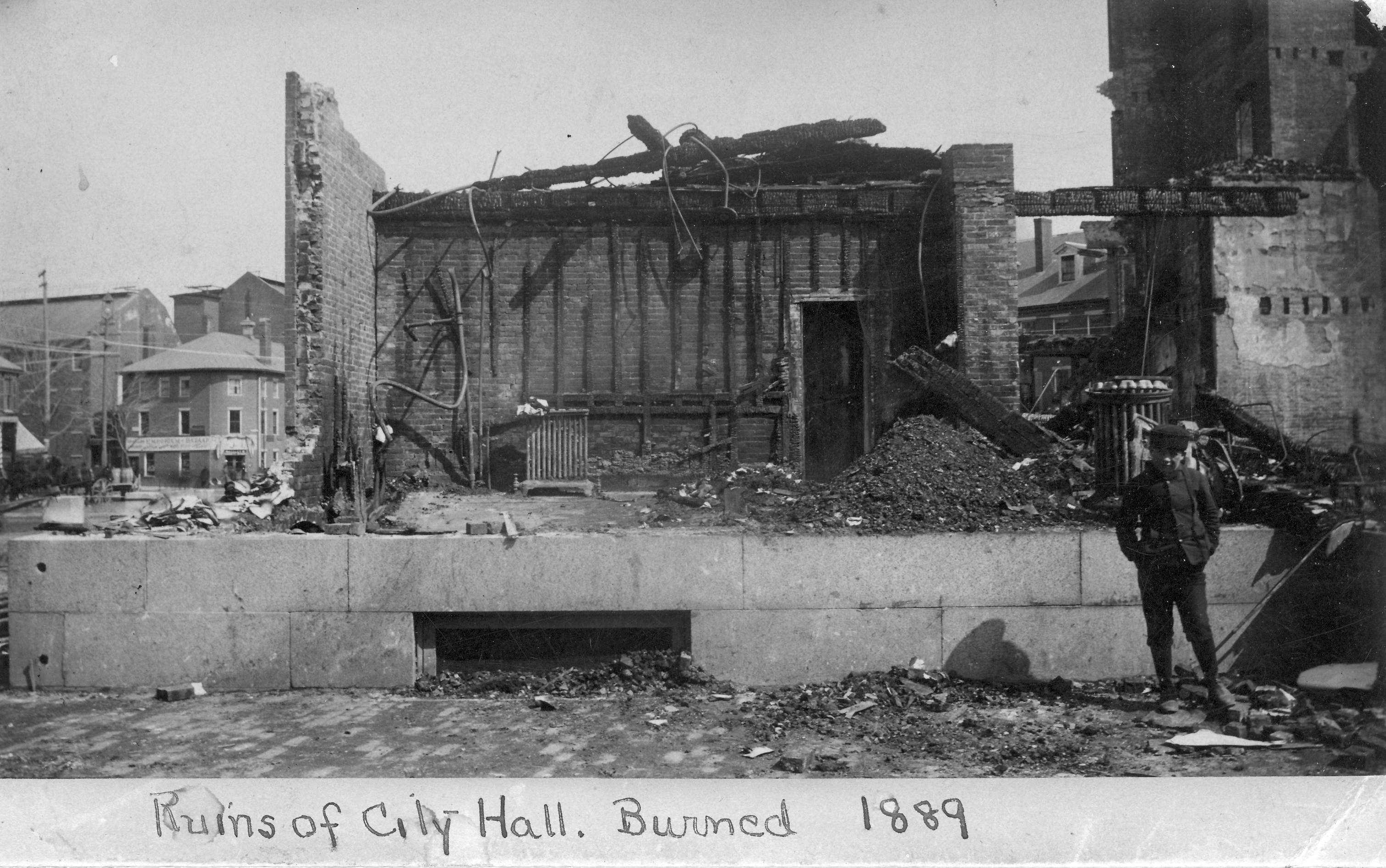Disclaimer
The Dover Public Library website offers public access to a wide range of information, including historical materials that are products of their particular times, and may contain values, language or stereotypes that would now be deemed insensitive, inappropriate or factually inaccurate. However, these records reflect the shared attitudes and values of the community from which they were collected and thus constitute an important social record.
The materials contained in the collection do not represent the opinions of the City of Dover, or the Dover Public Library.
Second City Hall Burns
Dover's Second City Hall

The first city hall was built in 1842 and burned November 23, 1866. It was located at the corner of Washington Street and Central Avenue where the Masonic Temple now stands. The second City hall was also located here. It was built in 1868 and burned March 22, 1889.


From the Dover Enquirer, “the City Hall of Dover upon which so much money has been expended, with which so much fault has been found, the City Opera House which despite its small size has been the pride of the city is now but a blackened mass of smoldering ruins and shaky brick walls. With new water works, a fire department always considered efficient, everyone wonders how a fire which was so insignificant at the start should spread beyond all control and destroy the property of the county and the town.” Police officer Robinson discovered a blaze near the furnace. The alarm was rung in and then the tramps let out of the police station. The stream from the hydrant was put on and everyone thought the fire had been smothered. Suddenly a stream of fire was seen in the court room and from there it extended to the stage and dressing rooms and the city hall was doomed. Twenty streams were soon playing on the fire, several of them misdirected. George E. Durgin, Clerk of Court, arrived none too soon to secure is property in the office. He saved his furniture and a strong box containing documents of great value. John B. Stevens, city Clerk, braved the smoke in his office and succeeded in saving a large amount of property with the help of officers and firemen. Frank Thompkins, Register of Deeds, managed to clear his office of most of the valuables. C.S. Clifford, Register of Probate, saved part of his office furniture and papers of value. The Belknap Church as usual took fire but was saved by the Cocheco Mfg. Co. Hose. When the dome of the City Hall was all on fire and just before it fell it looked like a gigantic piece of fireworks. The clock kept right on going and not until the fire had half consumed the tower did it cease running. It stopped at 3:30. When the roof of the tower gave way the heavy clock crashed down through the stairways and woodwork stirring up the fire and making it burn more furiously. (Many people though the building might have been saved under good management of the fire department. After the fire got beyond control the streams were directed to the safe in City Clerk Stevens office to save the records. The last official work done in this office was the reading of the final proofs of the reports of the City Government for 1888. The readers are now among the Northam Colonists. When the vaults in the buildings were opened the contents were found injured by water but not destroyed. The High School cadets lost half their guns in the conflagration. A few evenings before the fire, a dramatic entertainment, the play of Ben Hur, was given by local talent, under the auspices of ladies interested in the establishment of a Home for the Aged in this city, and on the night of the fire a crowded house listened to a concert by a Swedish quartette. On both of these occasions questions as to the safety of the hall, especially the balconies were raised so the citizens consoled themselves for their loss in thinking that possibly a greater catastrophe had been averted.

“The City Hall of Dover, upon which so much money has been expended, with which so much fault has been found, the City Opera House which despite its small size has been the pride of the city, is now but a blackened mass of smoldering ruins and shaky brick walls.” Dover Enquirer.
The City, apparently convinced that the plot of land where the old hall had stood was unlucky, was happy to sell it to the Masons. The Masonic Temple that was built here burned down three years later, leading the area to be nicknamed “the hot corner”.
This historical essay is provided free to all readers as an educational service. It may not be reproduced on any website, list, bulletin board, or in print without the permission of the Dover Public Library. Links to the Dover Public Library homepage or a specific article's URL are permissible.
